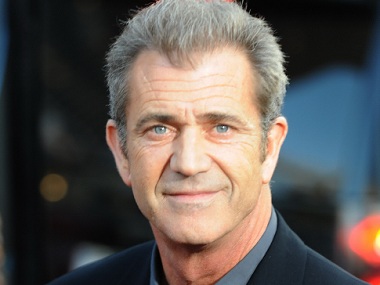The announcement of Mel Gibson being hired to co-write and direct a remake of the iconic western The Wild Bunch (1969) is newsworthy even though announcements of remakes hardly elicit impassioned reactions from fans and cinephiles anymore. As Gibson inches his way back to the mainstream after having fallen from grace, Hollywood has shown that it has not only forgiven the Academy Award-winning filmmaker but also publicly proclaimed its love for him. [caption id=“attachment_5257421” align=“alignnone” width=“825”] Mel Gibson. Twitter @DerangedRadio[/caption] Going by the ever-growing list of utterly pointless remakes of all-time great films, Sam Peckinpah’s The Wild Bunch is a film that needed to be left alone but trust Hollywood to do just the opposite. If one were to look beyond the apparent reason to not tinker around with the seminal classic, The Wild Bunch is, in fact, the ideal vehicle for Gibson, the filmmaker to relaunch himself. Despite his last film as a director, Hacksaw Ridge (2017) garnering a handful of Oscar nominations including a Best Director, Gibson hasn’t been able to make a bonafide comeback. He has also had some acting assignments such as Daddy’s Home 2 (2017) but that is a far cry from what Gibson, the one-time highest paid male actor in the world, would be used to. Although for different reason, both Peckinpah of yore and Gibson of late, have been relegated to the fringes of Hollywood. Gibson’s return has been in the making since he lost face and his place of power following his anti-Semitic outburst after being pulled over by a Jewish police officer in 2006 for a DUI. The incident led Hollywood to turn its back on someone who was near royalty. There have been several interpretations of Gibson’s actions following his arrest that include speculation that the star’s drinking problem took its toll on his long marriage with Robyn Moore, with whom he had seven children. Some quarters believe that Gibson was fearing the reality of his failed marriage, one that was for long considered to be amongst the strongest in Hollywood, and his alcoholism coming out in the open, which as a result forced him to go on a bender. There were some who believe that Gibson was driving too rashly to end his life and perhaps even wanted to
invite death by the cop who stopped him. As a filmmaker, Gibson has a unique way of dealing with onscreen violence. In the aftermath of the horrific Columbine High School shootings that left the United States, and most of the world, shell-shocked, Gibson said that onscreen violence is an easy target to channel the blame on. He felt that sometimes things tend to go too far but blaming films for such transgressions was “
not a good argument” as “sex and violence have always been around.” [caption id=“attachment_5345391” align=“alignnone” width=“825”]
A still from The Wild Bunch (1969). Image via Facebook[/caption] Gibson’s
mantra was simple when it came to films or character — if you don’t have some sin, you have no story. This also seems to be a pattern in his personal life as well — as was
revealed in an extremely racist phone call made by Gibson to his ex-girlfriend Oksana Grigorieva in 2010 where he admitted
hitting her and said she had “deserved it.” Most of the films that he has directed such as Braveheart (1995), The Passion of the Christ (2004), Apocalypto (2006) and Hacksaw Ridge all depict violence without flinching and, in fact, during the release of the self-financed $30 million The Passion of the Christ, Gibson even went on primetime television to warn the audiences of the film’s “
gruesome violence” which was necessary to “push [viewers] over the edge so that they see the enormity, the enormity of that sacrifice.” In many ways, The Wild Bunch is the perfect story for Gibson to tell. In The Wild Bunch, an ageing group of outlaws look for one last big score as the traditional American West is disappearing around them and the industrial age is taking over. It was a film that was deemed too violent when it first came out. Today, the film might be considered tame but it remains one of the first films that come to mind when one thinks of stylistic onscreen violence. It’s hardly surprising that a once unemployable superstar, who was thrown out of a cameo in The Hangover Part II, is managing to make a mainstream studio film. Hacksaw Ridge won many Oscar nominations even after everyone wrote him off. Some could also argue that unlike a Louis CK or Jeffery Tambor, Gibson has done his time or at least seems to have. But the question that remains, which no one in Hollywood would ask, is reflecting upon the wrong that one has done more important than doing the wrong in the first place? Once again, just because Gibson has seemingly ‘done’ time, Hollywood will happily forgive the crime.
As Mel Gibson inches his way back to the mainstream after having fallen from grace, Hollywood has shown that it has not only forgiven the Academy Award-winning filmmaker but also publicly proclaimed its love for him.
Advertisement
End of Article


)
)
)
)
)
)
)
)
)



